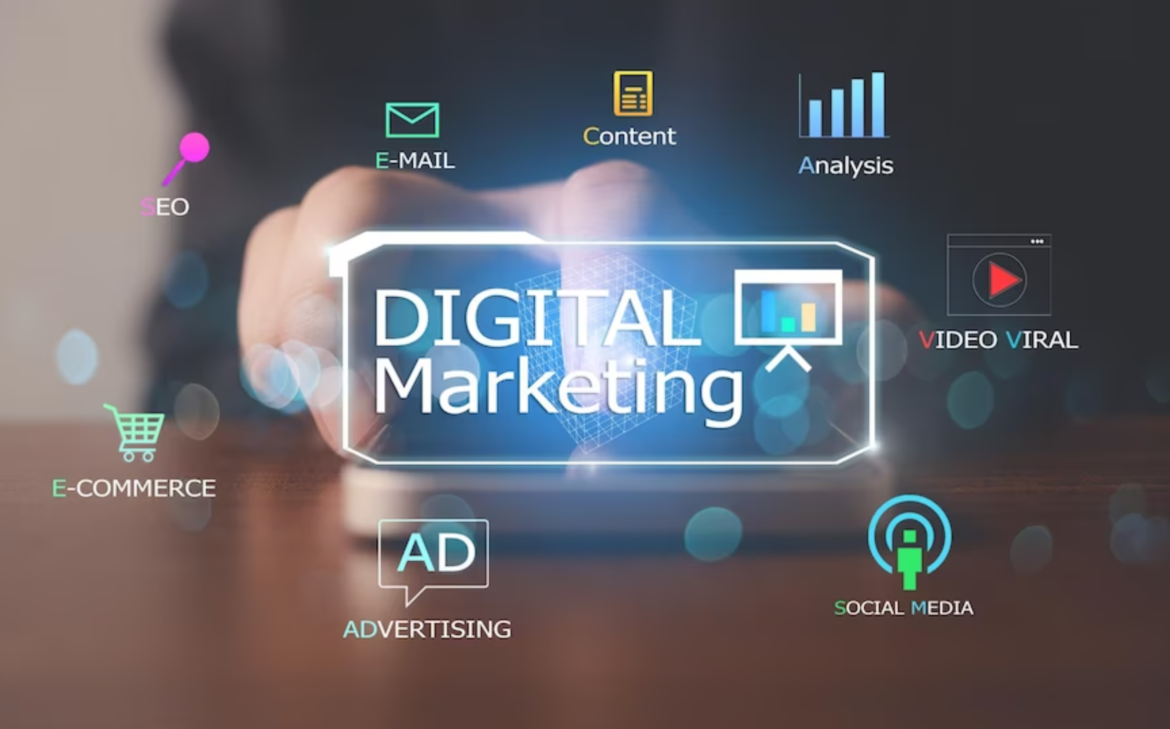Digital marketing refers to the practice of promoting products, services, or brands using digital channels and technologies. It encompasses various online marketing strategies and tactics to reach and engage with a target audience. Here are some key aspects of digital marketing.





digital marketing
- Search Engine Optimization (SEO): SEO involves optimizing a website’s content, structure, and technical elements to improve its visibility in search engine results. It aims to drive organic (non-paid) traffic by increasing the website’s ranking in search engines like Google.
- Pay-Per-Click Advertising (PPC): PPC advertising involves placing paid ads on search engines or other platforms. Advertisers only pay when a user clicks on their ad, making it a cost-effective way to drive targeted traffic to a website.
- Social Media Marketing: This involves using social media platforms like Facebook, Instagram, Twitter, LinkedIn, and others to connect with the target audience, build brand awareness, and engage with customers through content, ads, and community management.
- Content Marketing: Content marketing focuses on creating and sharing valuable, relevant, and consistent content to attract and retain a target audience. It includes blog posts, articles, videos, infographics, and other forms of content that educate, entertain, or provide value to users.
- Email Marketing: Email marketing involves sending targeted messages and promotions directly to a subscriber’s inbox. It helps build customer relationships, nurture leads, and drive conversions by delivering personalized and timely content.
- Influencer Marketing: Influencer marketing leverages the influence of popular individuals or influencers to promote products or services to their audience. This strategy taps into the trust and authority built by influencers and can be effective in reaching and engaging with specific target demographics.
- Mobile Marketing: With the increasing use of mobile devices, mobile marketing focuses on reaching users on their smartphones and tablets. It includes mobile-optimized websites, mobile apps, SMS marketing, and location-based advertising.
- Analytics and Data-driven Decision Making: Digital marketing relies on data analysis to measure campaign performance, track user behavior, and make data-driven decisions. Tools like Google Analytics provide insights into website traffic, conversions, and user engagement.
- Conversion Rate Optimization (CRO): CRO involves optimizing websites, landing pages, and other digital assets to increase the percentage of visitors who take desired actions, such as making a purchase or filling out a form. It aims to maximize the return on investment (ROI) from digital marketing efforts.
- Marketing Automation: Marketing automation uses software and tools to automate repetitive marketing tasks, such as email campaigns, social media scheduling, and lead nurturing. It streamlines processes, saves time, and enables personalized and targeted communication with prospects and customers.
Digital Marketing







